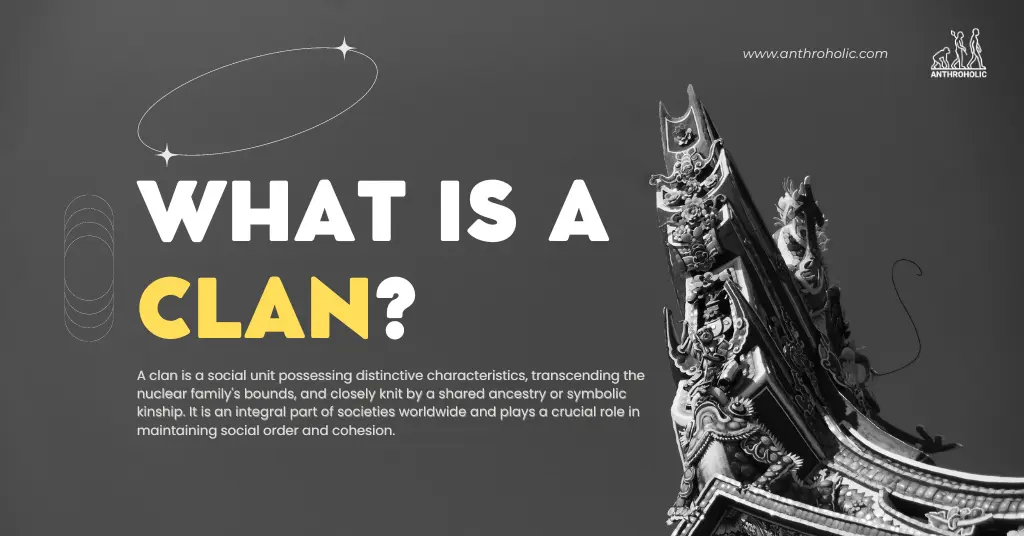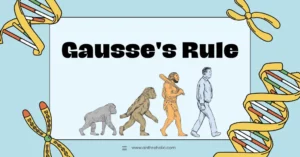AI Answer Evaluation Platform Live Now. Try Free Answer Evaluation Now
Clan
A clan is a social unit possessing distinctive characteristics, transcending the nuclear family’s bounds, and closely knit by a shared ancestry or symbolic kinship. It is an integral part of societies worldwide and plays a crucial role in maintaining social order and cohesion.

Understanding the Clan System
A clan, as mentioned earlier, is a group of people united by actual or perceived kinship and descent. Although the members may not be able to trace their genealogical links concretely, they uphold a belief in their shared lineage. This descent is often symbolized through a common clan totem — an animal, plant, or other natural object. Clans, in essence, serve as an extended family, providing a sense of identity and belonging to its members, regulating social interactions, and shaping cultural norms and practices.
Features of Clan
Shared Ancestry: This is the crux of a clan, the belief that all clan members share a common ancestry. Often, this common descent is traced to a mythical ancestor or totem.
Totemism: Totems are common symbols among clans, which could represent an animal, plant, or natural entity. These symbols often carry spiritual significance and act as an emblem for the clan, fostering unity and collective identity.
Exogamy: Exogamy is a common feature among clans, where individuals are expected to marry outside their clan. This practice encourages alliances and fosters relationships between different clans.
Territoriality: Some clans are territorial, occupying and claiming a specific geographic area as their own. This region is often associated with the clan’s identity and history.
Regulation of Social Order: Clans play a significant role in maintaining social order. They establish norms, customs, and traditions, mediate disputes, and can also have political implications in certain societies.
Case Studies: Clans Across Cultures
1. The Scottish Clans:
Scottish clans provide a classic example of this kinship structure. Each clan, known by its distinctive surname and tartan pattern, traces its lineage back to a common ancestor and typically hails from a particular geographic area. Clan members showed solidarity by rallying around their clan chief during conflicts, reflecting the importance of the clan system in medieval Scottish social and political structures (Way & Squire, 1994).
2. Igbo Clans in Nigeria:
In Africa, the Igbo people in Nigeria are well known for their clan structures. Here, clans are based on village groups with shared ancestry. Each clan has an elaborate social and political structure, with a council of elders playing a pivotal role in decision-making and dispute resolution (Afigbo, 1971).
3. Clan System Among Native American Tribes:
Native American tribes, such as the Iroquois and Navajo, have a strong clan system. These clans are matrilineal, with descent and inheritance passed through the mother’s line. The clan structure plays a vital role in social order, with each clan having specific roles and responsibilities within the tribal society (Jett, 1970).
Conclusion
In conclusion, the clan represents an integral component of anthropological understanding, offering insights into societal kinship structures, social regulation, and cultural practices. These societies’ clan systems, whether in Scotland, Nigeria, or among Native American tribes, illuminate the diverse forms this kinship structure can take, each adapted to its cultural, environmental, and historical context.
References
- Afigbo, A. E. (1971). The Age of Innocence: The Igbo and their Neighbours in Pre-Colonial Times. Longman.
- Jett, S. C. (1970). Navajo Prehistory and History to 1850. Handbook of North American Indians, 10, 13-20.
- Way, G. & Squire, R. (1994). Collins Scottish Clan & Family Encyclopedia. Harper Collins.



